The challenges faced by Ukrainian mass media in connection with the adoption of the new law On Media were discussed by the participants in a joint roundtable organized by the Dnipro and Ivano-Frankivsk Journalists’ Solidarity Centers (JSC) of the National Union of Journalists of Ukraine (NUJU). Representatives of the Union, the National Television Council of Ukraine, lawyers, and publications’ editors participated in the expert discussion. Other roundtable participants were teachers of specialized faculties of local universities.
The event was dedicated to World Press Freedom Day, celebrated by the world community on May 3.
“This day is a good opportunity to draw the attention of all citizens worldwide to mass media and their problems. It is also intended to remind society that journalists, fulfilling their mission, focus only on the reader, listener, and TV viewer, and that pressure on journalists is unacceptable,” noted the coordinator of the Ivano-Frankivsk JSC/executive secretary of the regional union of journalists, Viktoriya Plakhta.
The law and media realities
Inaugurating the event, NUJU First Secretary Lina Kushchch noted that journalists faced new challenges after the full-scale invasion. Some of them are caused by military aggression, but there are also those related to internal Ukrainian problems. One of these challenges is the new law On Media, which took force on March 31, 2023.
The board chairperson of the Dnipro regional organization of the NUJU, Oleksii Kovalchuk, drew the attention of the event participants to the context in which the law was adopted.
“5-6 years ago, 35 newspapers were published in Dnipropetrovsk Region. Currently, there are only 16. And this applies only to print media. The situation does not add optimism. The new law On Media caused many questions and concerns. The discussion is ongoing. Today, attention is again paid to the changes awaiting the media. Its legal field is studied by lawyers. I hope the legislators will listen and consider the comments of our great journalistic community. Therefore, our meeting today is destined to help deal with innovations,” stressed Oleksii Kovalchuk.
According to Lina Kushch, the NUJU would not like the new law to strengthen state control over the media and narrow the information field.
“The Union draws attention to inconsistencies in the law and makes proposals to the National Council. We encourage colleagues to join the discussion and submit comments. Only together will we be able to pass all the challenges with dignity,” Lina Kushch noted.
The representative of the National Television and Radio Broadcasting Council of Ukraine in the Ivano-Frankivsk Region, Ihor Maslov, drew attention to the fact that at the moment regulatory and legal acts are posted on the website of the National Council and the media community can submit their comments and suggestions until May 7, 2023.
“A meeting of the National Council is scheduled for May 18, where the first normative legal acts will be approved. Accordingly, on May 19, they will be published on the website, and the process of licensing, relicensing, and media registration will begin from that date,” Ihor Maslov said.
According to the expert, the law:
- increases the number of media subject to regulation (print and online media have been added);
- introduces a body for the co-regulation of all types of media. It will solve acute issues and develop statutes and codes by which the mass media will work.
Inspections, fines, and corruption risks
Serhii Voronskyi, a media lawyer, lawyer, and the head of the Audit Commission of the NUJU LLC, emphasized that Ukrainian media have operated under the new law for only a month. Therefore, it is too early to talk about regulatory influence. In his opinion, the advantage of the document is the expansion of the concept of ‘media.’ However, there are a number of issues that cause concern, he says. For example, strengthening the role of the National Council and expanding its powers can realize corruption risks.
A standalone issue is the payment of fines. In Ukraine, the highest referee has always been the court. However, according to Voronskyi, the new law stipulates that the media must first pay the fine and only then challenge it in court.
At the same time, Ihor Maslov urged journalists to read the law carefully.
“I would like to draw your attention to the fact that serious types of liability arise if the print media violates the norm more than five times a year,” he emphasized.
The meaning of amendments
The laws that previously regulated the media sphere are so outdated that they do not allow to respond to today’s challenges adequately. During the discussion, Olena Demchenko, a representative of the National Council in the Dnipropetrovsk Region, expressed this opinion.
“This law will modernize our media,” she says. “It will serve progress instead of regression. It encourages the media to be active, rather than passively waiting for the rules.”
Olena Demchenko notes that according to the new law, the National Council is a body that helps and advises, not punishes. To apply any sanctions to the media, it is necessary to carry out painstaking work with the evidence base.
Head of the Department of Journalism, Advertising, and Public Relations at King Danylo University, Vira Kachmar, is convinced that the law must change to keep up with the times.
“Opinions, views, and, most importantly, the reality change. The law should be changed accordingly. Just as the educational program can be reviewed every month, so the law must be improved because life dictates rapid changes to us,” she summarized.
Call the Ivano-Frankivsk JSC by dialing 066 677 0726 (Viktoriya Plakhta, the Ivano-Frankivsk Center coordinator). JSC’s address is 25 Sichovykh Strilitsiv Street.
Call the Dnipro JSC by dialing 096 208 6788 (Nataliya Nazarova, the Dnipro Center coordinator). JSC’s address is 8 Starokozatska Street.
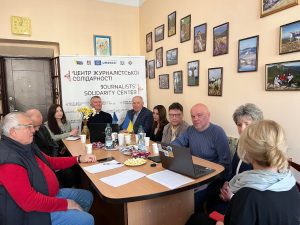
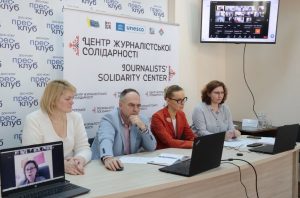
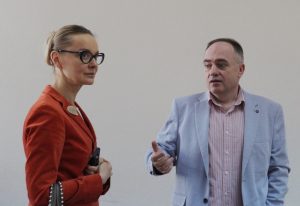
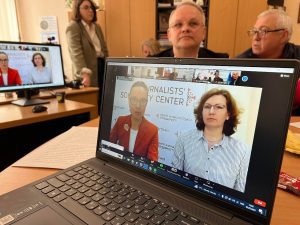
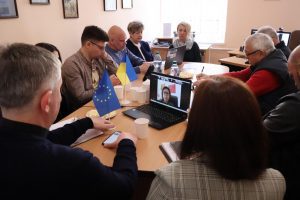
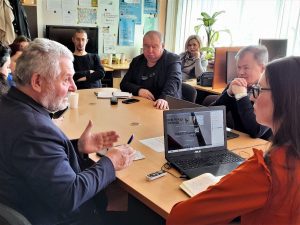
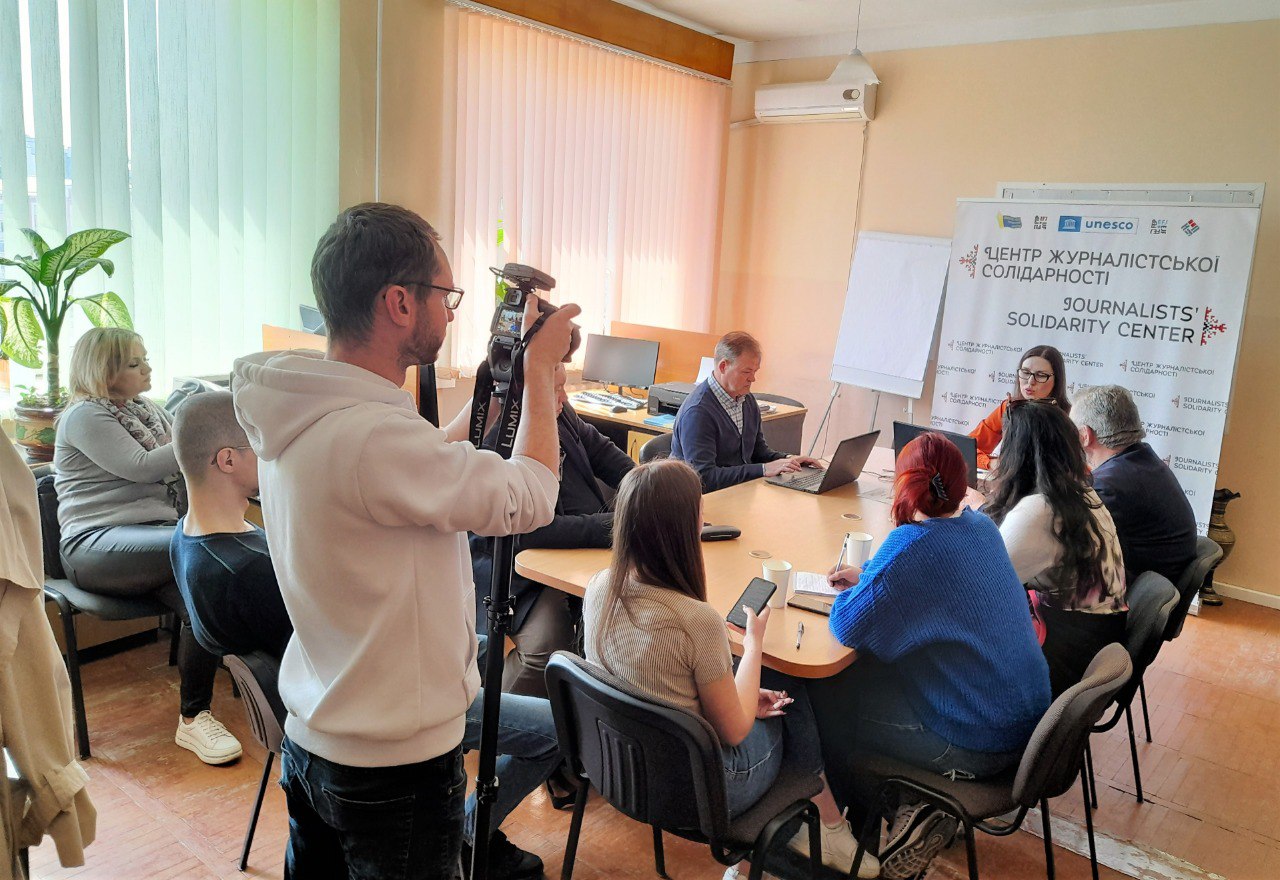
As earlier reported, the Journalists’ Solidarity Centers is an initiative of the NUJU implemented with the support of the International and European Federations of Journalists and UNESCO. The initiative is designated to help media representatives working in Ukraine during the war. The Centers operate in Kyiv, Lviv, Ivano-Frankivsk, Chernivtsi, Zaporizhzhia, and Dnipro and provide journalists with organizational, technical, legal, psychological, and other types of assistance.
UNESCO is the United Nations Educational, Scientific, and Cultural Organization. It contributes to peace and security by promoting international cooperation in education, sciences, culture, communication, and information. UNESCO promotes knowledge sharing and the free flow of ideas to accelerate mutual understanding. It is the coordinator of the UN Action Plan on the Safety of Journalists and the Issue of Impunity, which aims to create a free and safe environment for journalists and media workers, thus strengthening peace, democracy, and sustainable development worldwide. UNESCO is working closely with its partner organizations in Ukraine to provide support to journalists on the ground.
The designations employed and the presentation of material throughout this digest do not imply the expression of any opinion whatsoever on the part of UNESCO concerning the legal status of any country, territory, city, or area or its authorities or concerning the delimitation of its frontiers or boundaries.
The authors are responsible for the choice and the presentation of the facts contained in this digest and for the opinions expressed therein, which are not necessarily those of UNESCO and do not commit to the organization.
Information services of Dnipro and Ivano-Frankivsk JSCs

 THE NATIONAL UNION OF
JOURNALISTS OF UKRAINE
THE NATIONAL UNION OF
JOURNALISTS OF UKRAINE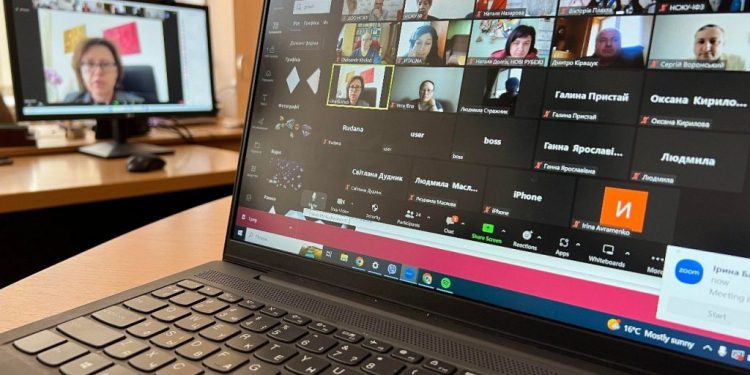
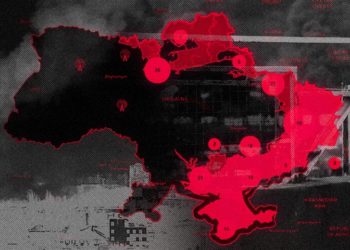
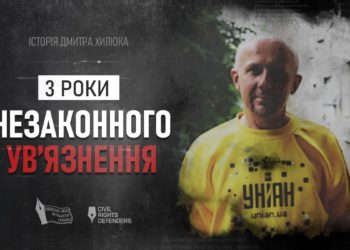














Discussion about this post